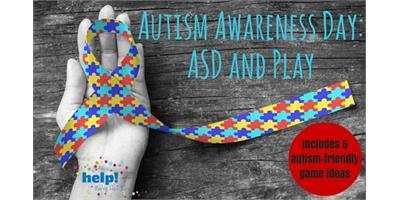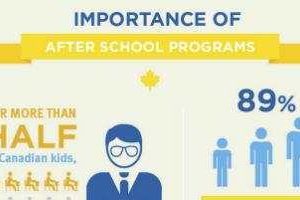April 2nd is World Autism Day. Many parents and caregivers today are raising a child with special needs, often related to Autism Spectrum Disorder (ASD), or have a friend or family member with the condition. Because so many people are closely related or personally affected by ASD, we thought it would be useful to share some information with you.
We also put together a list of games that are fun to play with kids who have been diagnosed with ASD. They are actually fun for any kids, no matter their needs, and help stimulate growth and imagination. Play is an important part of childhood, and can be especially important for kids with autism.
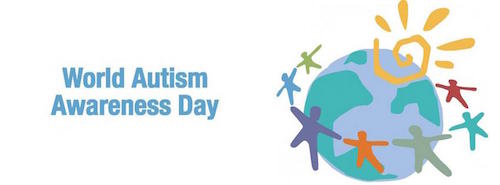
What is autism?
Autism Spectrum Disorder (ASD) is a term for a group of complex neurobiological (brain) conditions that affect children and adults. The conditions have a group of symptoms that can affect multiple systems in the body, including the nervous, digestive, immune, and endocrine systems.
People with an ASD have different brain development and neurological structure than people not on the spectrum (who are called neurotypical). This different neurological development often leads to difficulty with communication and social interactions, and a tendency towards repeated behaviours.
The origins of autism are rooted in early brain development (before, during, and after birth), and the complex causes of the disorder likely have to do with a combination of genetic predisposition and environmental factors.
Because it is a spectrum, the relative severity of the disorder ranges greatly with each individual person presenting with their own unique symptoms.
Types of play
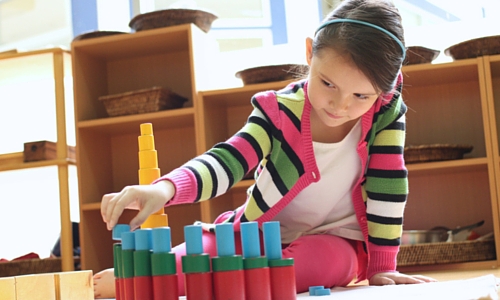
Early diagnosis and intervention is important for those with autism because starting treatment early helps to improve outcomes. As an essential part of childhood, learning the many different types of play skills (including playing with others) is important for development. As neurological development is different for children with autism, learning play skills can be challenging and may require more active attention and intervention to help develop.
Differences in communication abilities, restrictions in the types of play that are preferred, and exclusion from social play by other kids are all reasons why play, and especially social play, can be difficult for children with autism.
It is worth taking a moment to consider the different types of play that kids typically engage in:
There is exploratory play, where a kid is exploring a toy with their various senses; cause-and-effect, when a toy’s function (such as lighting up) is caused from a particular action (pressing a button); and functional play, where a toy is played with in the way it was intended or designed to be played.
There is also constructive play that involves building and making things, as well as physical play, which involves using and moving the whole body. Pretend play is where kids use their imaginations to make-believe and is the most sophisticated form of play.
The types of play above can generally either be individual or social. On top of these categories of play, social play is when kids play with their peers or other people and has its own stages. There is also solitary play, where an individual plays alone but in proximity to other peers, and parallel play, which involves playing alongside other kids, possibly playing a similar game or using similar toys.
Associative play includes interactions with other kids in the form of sharing play materials. Finally, cooperative play is complex and includes playing games that involve rules (or making rules up) or building something, such as a fort, as a group.
Tips for play and autism
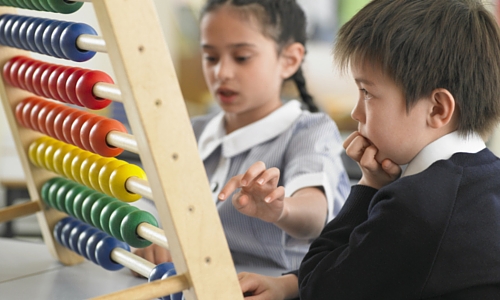
Social play requires a lot of communication and social skill, as well as a variety of learned abilities for the types of play mentioned above. Because kids with autism struggle with these things, here are some ideas and tips that can help you to include all types of children in play activities.
Children with an ASD are foremost a child, a young person facing different challenges than a neurotypical kid. It is important to treat a child with autism as a whole being, not just autistic.
Each person with autism is different; there is no one size fits all for the steps to take to make playtime more inclusive. If you’re not sure where or how to start, talk to the people who know the child best, such as their parents or support worker, to find the best ways to incorporate everyone in play. Talking with the caregiver is especially helpful if your kids have autistic classmates over to play, and you want to make sure everything goes smoothly.
Speaking in concrete terms is useful, since metaphors and allusions may be lost on children with autism who think more concretely. (This also means sarcasm is a no-no.) Visual supports can help with instructions as well, because they can communicate the information more effectively and can be referred back to.
Structured activities are often best, those that have a distinct start and finish. Structured play benefits from having clear guidelines for the activity and can help a child with autism understand the steps, skills, and goals they need to complete the activity. Examples of good structured play activities are jigsaws puzzles, matching games, and song and action DVDs.
5 autism-friendly games
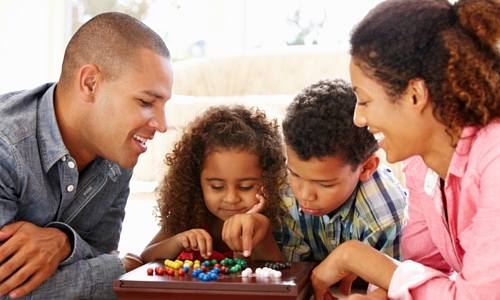
Games that include different types of texture, colours, and sounds are also good options. Below you will find a couple of fun activity suggestions to get you started.
Coloured Beans:
Incorporate texture and colour to some common kitchen beans that can be used in many types of play and art activities, and will also last for months and months.
Ice Towers Excavation:
Collect favourite toys and craft supplies and construct a tower of ice encasing the treasures. Kids use their hands and tools to unearth and de-ice the toys.
Spider Walk:
Incorporate balance and spelling in this fun game, where letters are spread out on a web and collected to spell words.
Hide and Seek:
This classic game is great for all children – make it snazzier by having the person who is “it” wear a funny hat that easily distinguishes them.
Board Games:
There are so many excellent board games out there that come with their own built in instructions, and are social by nature.
These ideas are just starting points, there are so many options out there for incorporating all types of children in play. What are you favourites? Share them with us on Facebook or Twitter.
Jen Vander Vecht is a writer and soon to be full-time mom. When not crafting four different knitting projects at once, she can be found dumping ingredients into her slow-cooker, walking the dog, watching Doctor Who, or researching cloth diapers.
READ MORE LIKE THIS:
- Tips for Talking to Kids About People With Disabilities
- Ways to Support a Sibling in a Special Needs Family
- The Benefits of Knitting for Kids
Find the support you need, useful ideas, helpful resources, as well as sports and activities in our Special Needs directory.
Sign up for our newsletters to get parenting and family fun articles delivered to you!

